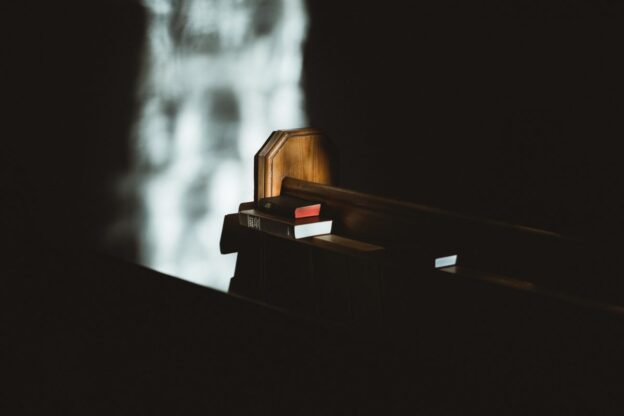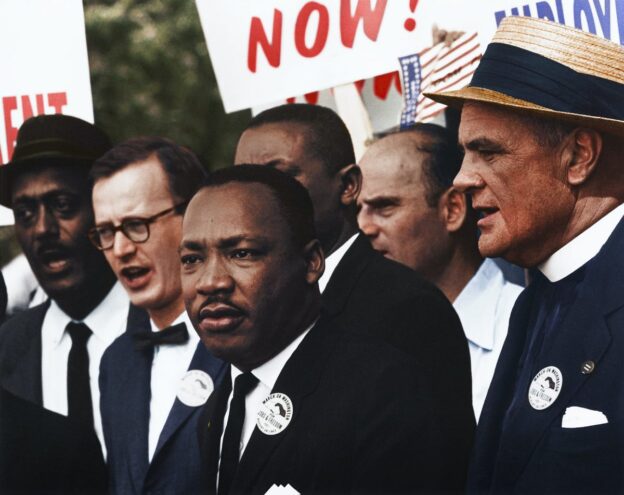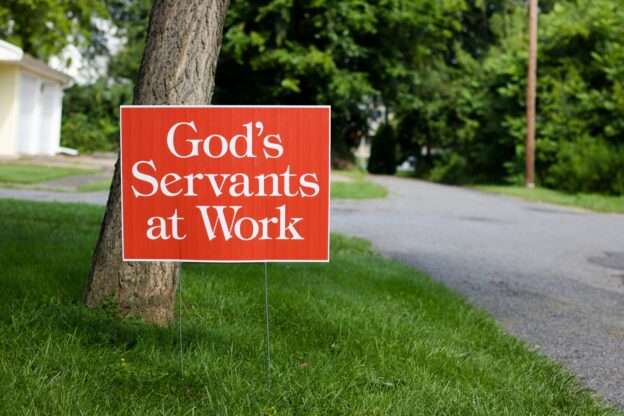Today’s post is a compelling piece written anonymously by a successful pastor.
The Ideology of a Cancer Cell
I rarely have those moments I would unquestioningly call, “divine.” I’ve never been one to see the fingerprints of God on everything around me. So when something happens in my life that just seems divinely orchestrated, I have to latch on to it.
The other day I was sitting in Chik-Fil-A, eating my #1 with no pickles, sipping my Coke Zero, and reading my new Eugene Peterson book, The Pastor. As I read, sometimes challenged, sometimes encouraged, sometimes disagreeing, and sometimes annoyed with Peterson, I looked over and saw a young lady at the table next to me. She had a baseball cap on with a small, round pin clipped to the side. I’m sure I looked rather stalker-ish trying to read the small print from 7 feet away, but the effort was worth the risk. Her pin read, “Growth for the sake of growth is the ideology of a cancer cell.”
The pin had no logo. Just the words. I have no idea exactly what it was protesting. But because I’m a pastor, it didn’t take long for me to think of the church and how I, and many of my fellow pastors, see church growth as an end in itself.
After reading the pin and being prompted to thought by its vivid verbiage, I then looked down at my book once again. Where I’d left off before staring at the other patron’s head, Peterson had just written a letter to one of his friends who was leaving his church to pursue the greener pastures of a bigger church. Peterson wondered, in his letter, if the guy hadn’t just been enamored with the idea of a big church and had not been sufficiently enamored with simply being a pastor. So when my eyes went back to the page, this is where Eugene picked up – and I think you can see from this why I think I was having a divine moment:
“He accepted the call to the big church, and then another, and then another. I would get occasional reports on him from friends. All the reports seemed to document that size was turning out to be a false transcendence in his life. Meanwhile, the momentum of what was being termed church growth was gathering. All of us in the Company agreed it was misnamed. It was more like church cancer – growth that was a deadly illness, the explosion of runaway cells that attack the health and equilibrium of the body.”
If I can have a moment of critical reflection before anything else – I honestly do find Peterson’s comments here a bit condescending and extreme. I’m sure he knows his friend and probably something of his friend’s motivation, but not everyone who goes to a bigger church does so for self-centered glory. I do not believe either big church or small churches are the solution to the American church’s major problems. If you’ve ever spent much time in a small church, you know not to sentimentalize them any more than people who have seen the sausage made in big churches can consider them all bunnies and sunshine. Both are filled with finite, sinful human beings. Neither should be held up as the ideal – after all, Acts 2 records a church of 2,000 on the day of Pentecost, and some of Paul’s letters were probably written to small churches meeting in houses. Both are acceptable New Testament models. Both have strengths and weaknesses. I think Peterson is too hard on big churches in The Pastor. I think he’s too easy on small churches.
But he’s probably not entirely wrong about the church growth movement that drives big churches. I can probably point to other people I’ve known, other ministers and pastors, but I think it’s mostly appropriate to talk about myself. There is something grand and exhilarating about growing a church. It’s in some ways validating to the pastor, his/her preaching skills, and general likeability. There’s a kind of energy (often confused with the Holy Spirit, I think) in a room full of worshipers that is contagious and addicting. For these reasons, it can be really easy for me to focus on and find my satisfaction, not in changed lives, but in simple numbers. Church growth. Attendance. Butts in seats.
I know I can’t be the only one who struggles with the temptation to find my satisfaction and identity in church attendance because we have entire conferences pastors pay lots of money to attend simply designed to tell us how to make our churches get bigger.
When pastors lament the waning of the American church, what we are often really lamenting is a declining attendance. Our complex metrics and statistics tell us all kinds of things about church attendance trajectories and predictions, but few of us have thought through adequate and objective ways to evaluate whether or not our congregants are taking up their crosses. Some churches even hire pastors based on whether they think the pastor can make the church grow numerically. Pastors like me can even get caught up in it, thinking we’ve “arrived” because the numbers are the primary indicators of our talents. Then we secretly compare the size of our church with that of our colleagues – the fallout of which is, ehem, a bit of steeple envy.
At some point in wrestling with my own gauges of success, I wonder, to what end are we growing? Why exactly am I excited that my church or my service is growing at a high rate? Am I obsessed with growth simply for growth’s sake? How big is big enough for me? Am I just building bigger and bigger barns to store more and more people but caring only in a lip-service way for the development of their souls, bodies, minds, and societies in the image of Christ? And is there ever a time when church growth might be contrary to the kingdom of Christ? If so, how would we know?
Again, don’t get me wrong – I don’t have a problem with big churches in themselves. I work in a big church. Given the right structures for relationships, personalization, humanization, and discipleship, big churches can be really healthy manifestations of the gospel. They can be salt and light. They can most certainly witness to the gospel in their towns and around the world. So, no, big churches are not the problem. And to that end, I’ve also been in churches of 30 people that were obsessed with the attendance they didn’t have. But at the same time, whether the church is large or small, pastors can still have that greedy, cancerous voice in our head that wants us to value church numerical growth over church spiritual growth. That cancer whispers in our ears of the glory that could be ours if the sanctuary had 3,000 people instead of 300, or 300 instead of 30. At every level these sirens cry out for the pastor’s attention, and I fear for myself and many of my colleagues that we will find ourselves shipwrecked there if we are not careful.
When we take an honest look at the Bible, church growth as an end in itself does not seem to be something Jesus seems manifestly concerned with. Jesus had several opportunities to grow his numbers, but instead he sent the crowds away. He had no problem letting people walk away who could not give up their possessions (something almost no church growth experts would recommend, I expect). He had no problem angering the Pharisees, even though he knew that if he got them on his side he would gain the average-Joe population with them.
Of course, no pastor – myself included – has the guts to say, “I don’t care about making disciples; I only care about making my church bigger.” We don’t want to think of ourselves as having the “ideology of a cancer cell.” Every one of us is, in theory, willing to let people walk away. Every one of us is, in theory, willing to suffer the loss of audience for the sake of the gospel.
But how often does this really happen in practice?
Be honest. Don’t just attribute the decline in attendance to “the gospel” when it could have been your bad preaching or the cliques in your church. Be honest. How many times have any of us actually lost people because of the call to take up a cross and deny self?
This is what makes me wonder about my motivation. This is why I wonder if we have somehow missed the point. Look, if you want to gain a crowd, serve some coffee and have a giant pizza party. You don’t need Jesus for that. Some Papa Johns should do the trick. But if your objective in ministry is to make disciples of Jesus Christ, church growth may be a natural corollary to that mission, but it is not an end in itself. And therefore we pastors – the royal “we” by which I mean “I” – need to be much more in tune with our motivations, measuring methods, and the things we celebrate with our staff and congregation.
Since we pastors struggle to grapple with this question in a self-reflexive kind of way, I’d like to just pose a few questions to help us see whether or not we desire growth for the sake of growth or if our growth is really kingdom oriented.
- When you evaluate the success of the Sunday morning service (or any ministry of your church) is your first question, “How many people attended?”
- Do you find yourself envious of pastors with bigger churches? Or judgmental toward pastors of smaller churches?
- Have you ever said something you thought might lose you a percentage of your congregation, but you knew you needed to say it to be faithful to the gospel? Or did you shy away from it for fear of slipping attendance or making people upset?
- When you consider the measureable goals you have for your church this year, how many of them are attendance based or financial? How many of them concretely gauge whether or not true discipleship and life change is happening in your congregation?
- Do you spend as much time and energy thinking about how to get people into deep relationships with each other and Jesus as you do how to get them in the door week after week?
- Is your self-esteem as a pastor in any way connected to how many people attended church last Sunday? If there had been fewer people, would you have felt like a failure? If there had been more people, would you have felt like more of a success?
- When you think about the future of your church, do you primarily dream in terms of more attendees, more services, more programs, and more visitors, or do you think in terms of more relationships, more disciples, and deeper connection to Christ?
- Comparatively, what do you spend most of your time doing? Praying for your Sunday morning services or planning how to get people to come/return?
- If a neutral party were to anonymously ask your staff, “Does your pastor care more about church growth in attendance or church growth in connection to Jesus” what would your staff say? Why would they say it?
- When you celebrate your staff, do you celebrate their numerical victories in regards to attendance at their events, or do you celebrate the concrete discipleship and relationships they built and fostered?
- Have you ever been willing to send someone to another church because you think they would fit in better there? – in other words, do you think kingdom growth is more important than your local church’s growth?
- Deep down in your heart, when you’re honest with God about your motivations, do you have a sinful desire to grow the church big for the sake of growing the church big (and all the reputation and frills that come along with that), or do you want to see God’s kingdom grow, even if that means shrinking attendance at your church?
I ask you all these questions because these are the questions I must ask myself. I love preaching to a full room. I love it when people respond to my preaching and my ministry. I love looking at the spreadsheet every Monday morning and seeing how much our congregation has grown in the last two years. A certain amount of my identity is wrapped up in that growth. It’s tempting to keep chasing it.
And I know it’s tempting for you, too. But are you willing to acknowledge that this exists in your heart? And what are you willing to do to shift gears, change what you value, and see church growth (or non-growth) in light of God’s kingdom values? I don’t know about you, but I don’t want to have the ideology of a cancer cell. I want to have healthy growth, which may or may not look like the image we’ve been sold at conferences, by consultation groups, or even by our peers.







